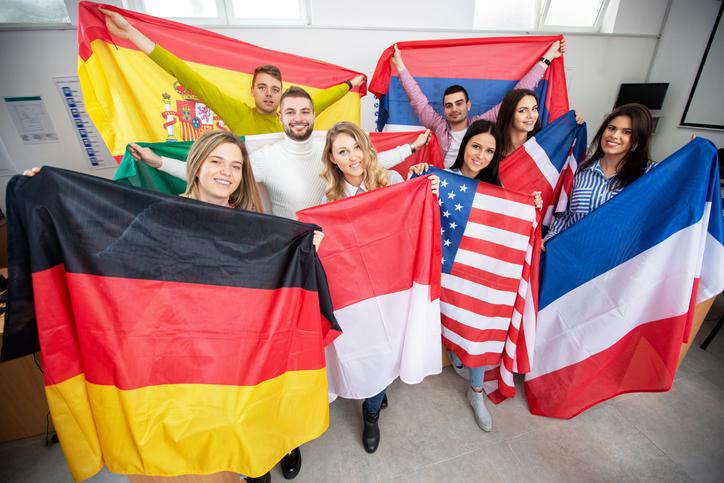An international student orientation programme should be more than a single day of welcome; it should act as a guiding light, helping students overcome obstacles and thrive in their new academic and cultural environment.
While each international student’s experience is unique, new arrivals face common challenges in academics, social interactions, adapting to a new culture and maintaining their well-being. Regardless of their adaptability, all international students need support from their host institutions for a smooth transition. One effective tool for providing this support is an international student orientation programme. These programmes, while tailored to the culture and resources of each institution, share a goal: helping international students adjust to the university.
- Help students make the most of studying overseas at branch campuses and beyond
- Is your university worth the investment for international students?
- Five tips for helping international students settle in their new surroundings
This article describes the international student orientation programme at the University of Canterbury (UC) in New Zealand, where the international office collaborates with other student service teams to welcome students from around the world and help them overcome the challenges they encounter. Manaakitanga is a guiding principle for university staff, and a core value at UC, ensuring a supportive and inclusive environment for every international student in their academic pursuit and cross-cultural journey.
Orientation begins before students arrive on campus
A comprehensive orientation should start before students leave their home countries. This is a crucial time because students may be anxious about moving to a new country. The primary objective of pre-arrival sessions is to assist students in completing essential procedures, such as applying for student visas, booking international flights and securing the right accommodation. These sessions should provide information about what life will be like at the new institution and in the host country and help alleviate students’ concerns.
This period is also an excellent time to introduce students to key support staff. Institutions can effectively engage with students through means such as email, online meetings and social media. Email offers the advantages of hyperlinks and allowing for self-paced reading. Content within emails can encompass welcoming messages, reminders to apply for visas and book accommodation, instructions on enrolling and introductions to the host country’s culture.
Zoom meetings enable real-time interaction with other international students. These sessions can include welcome messages from senior staff, opportunities to meet key student support staff and Q&A sessions. In addition, short videos on social media platforms provide an engaging format that can be easily shared with a broader audience. These videos can also contain welcome messages, feature senior students introducing the campus and key student support services, offer insights into the host country’s culture and language, and provide helpful tips for arrival day.
What happens when international students arrive on campus?
Orientation sessions should take place shortly after students arrive in the host country and before their academic classes start. These sessions should aim to prepare them for their educational journey and life in their new country. In addition to extending a warm welcome, orientation covers academic, social, cultural and well-being elements and so kick-starts students’ adjustment to the institution and their new environment. The international office and other student service teams, such as the academic skills centre, student advisers and health centre, can collaborate to create an effective arrival orientation programme.
The programme starts with an orientation day, and a core tenet of an in-person orientation day is to foster a warm and welcoming atmosphere, allowing international students to connect and form relationships. Don’t overload students with information – they can receive useful information in subsequent sessions. Below is what we include in international orientation sessions at UC. In addition to these sessions, activities such as a city tour or a field trip can make the experience memorable and enriching.
- International welcome: meeting student service teams and other international students
- Living essentials session: banking, transportation, health, safety and shopping
- Local culture session: getting to know common expressions, local food and customs
- Student life session: exploring student clubs and mingling with other international students
- Academic success session: understanding the university system, learning techniques and time-management skills
- Well-being session: how to manage academic-related stress
- Advocacy and welfare session: understanding rights as international students and being aware of advocacy services on campus
- Work and career development session: career path planning, understanding the local job market and visa requirements related to employment.
Ongoing engagement to reinforce belonging
After the arrival orientation sessions, it is crucial to maintain regular engagement with international students. Weekly tea or coffee meet-ups, for example, provide an opportunity for international office staff to build rapport with students and gather feedback. These regular gatherings can follow diverse themes; for example, invite a local police officer to discuss safety topics with international students.
In addition to regular meet-ups, the international office can also support and promote student club events that facilitate connections among international students, domestic students and the local community. Consider activities that promote cross-cultural awareness, such as an international food festival or fashion show.
Volunteer opportunities for new international students can help them build a sense of belonging and meaningful connections beyond the campus. At UC, international students actively engage in volunteer work, including at retirement villages, national parks and local libraries.
The journey of international students is a blend of excitement and challenges. Common threads of academic adaptation, cultural adjustment and social integration highlight the need for support from host institutions. Comprehensive international student orientation programmes play a pivotal role in nurturing a sense of belonging and promoting success among international students throughout their academic and cross-cultural journey.
Mengping Cheng is international student experience coordinator in the International Relationships Office at Te Whare Wānanga o Waitaha | University of Canterbury, New Zealand.
If you would like advice and insight from academics and university staff delivered direct to your inbox each week, sign up for the Campus newsletter.




comment